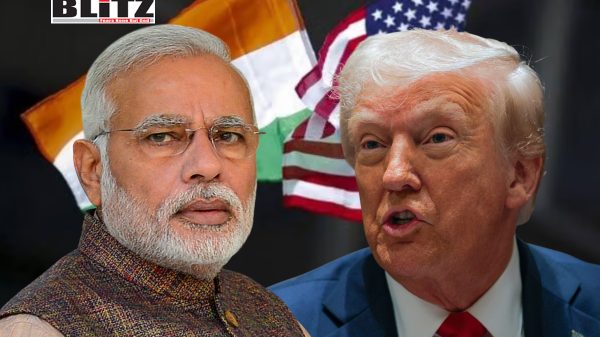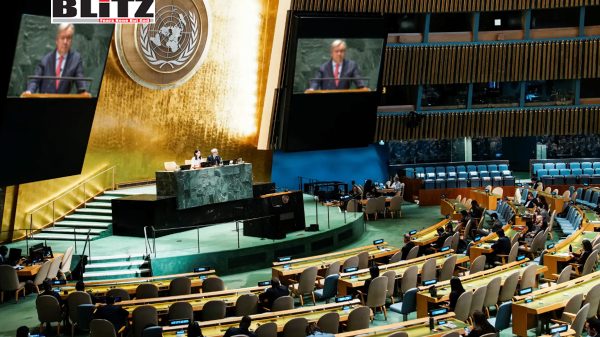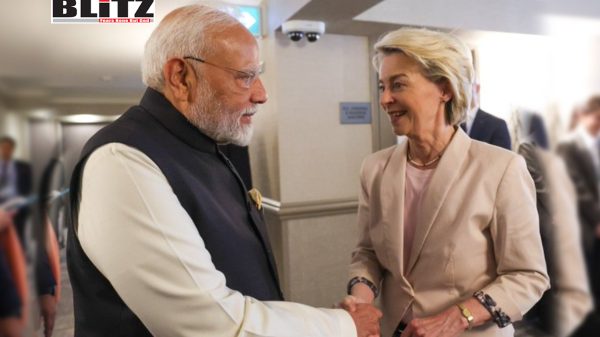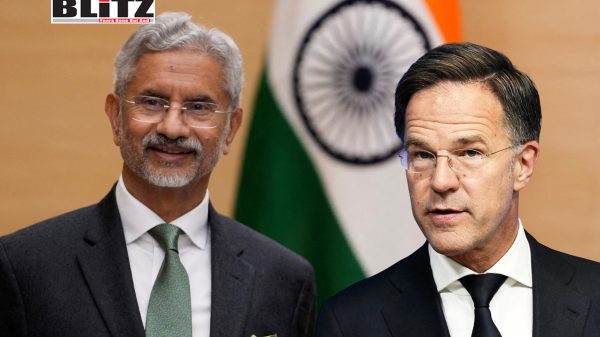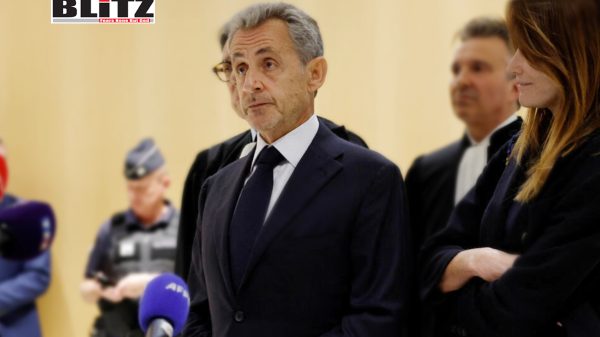Trump’s 100% drug tariff escalates trade tensions with Europe
- Update Time : Saturday, September 27, 2025
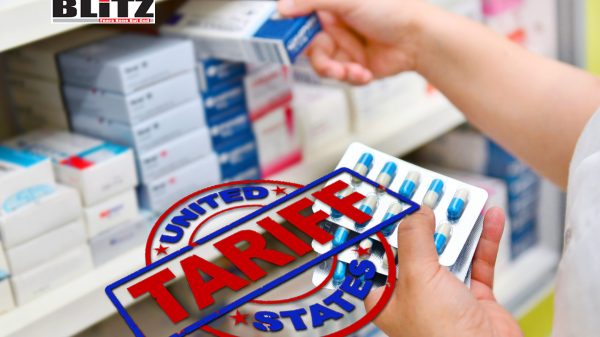
US President Donald Trump has reignited his combative trade agenda with the announcement of a sweeping 100% tariff on imports of branded pharmaceuticals. The measure, set to take effect in October, marks a dramatic escalation in his efforts to force multinational drug manufacturers to relocate production facilities to the United States. While the White House portrays the move as a bid to strengthen domestic industry and reduce prescription drug prices for Americans, critics argue it will raise healthcare costs, destabilize global supply chains, and intensify transatlantic trade frictions.
Trump has long accused America’s trading partners-especially the European Union-of exploiting the US market through unfair pricing practices. During his first presidency, he frequently lashed out at the EU for “ripping off” the United States in pharmaceuticals and other sectors. In April of this year, he labeled Brussels “nastier than China,” claiming that European governments deliberately drive down drug prices domestically, leaving Americans to subsidize pharmaceutical research and development costs.
At that time, Trump stopped short of targeting pharmaceuticals directly. Instead, his administration imposed tariffs on steel, aluminum, electric vehicles, and agricultural goods. The September 26 announcement represents a sharp turn from rhetoric to enforcement, with branded drugs-the crown jewel of European exports to the US-squarely in his crosshairs.
In a post on his social media platform, Trump clarified that exemptions would apply to pharmaceutical firms currently building or expanding facilities in the US. “If you are breaking ground or under construction, you will not face the tariff,” he wrote. This carve-out is designed to accelerate onshoring, rewarding companies that demonstrate tangible commitments to domestic production.
The exemption underscores the broader “America First” industrial strategy, which has become the hallmark of Trump’s second term. By using tariffs as leverage, he seeks not only to protect US jobs but also to reconfigure global supply chains to reduce reliance on imports in strategic sectors, from semiconductors to medicines.
Europe stands to lose the most from this policy. The EU is the leading supplier of branded drugs to the American market, with Ireland, Germany, Switzerland, and Belgium serving as pharmaceutical powerhouses. These nations host large manufacturing plants that supply patented medicines critical to US healthcare providers.
Generic drugs, which constitute a significant portion of US imports from India, are exempt from the tariff. This distinction signals that the administration’s priority is not low-cost medicines but high-value branded treatments-many of which are still protected by patents and yield substantial profits for manufacturers.
For Brussels, the tariff comes as a heavy blow. European pharmaceutical giants such as Roche, Novartis, and AstraZeneca rely heavily on the US market for revenue. The sudden imposition of a 100% tariff will either double the cost of their products for American patients or force companies to absorb losses to remain competitive.
Unsurprisingly, the pharmaceutical industry has reacted with alarm. Within hours of Trump’s announcement, a coalition of 32 major pharmaceutical companies sent a letter to European Commission President Ursula von der Leyen, warning that the tariffs could shift more than €100 billion ($117 billion) in investment away from Europe over the coming years.
The letter, signed by the CEOs of leading firms, called on Brussels to reform its pharmaceutical policies to retain competitiveness. Their demands include stronger patent protections, streamlined regulatory approvals, and reforms to Europe’s rigid drug pricing system, which they argue leaves companies with little room to reinvest in innovation.
The companies also cautioned that the US tariffs would accelerate a global reshuffling of research and manufacturing priorities. With firms like Merck & Co., Johnson & Johnson, and Novartis already announcing billions in US plant investments, Europe risks losing both capital and talent to a more favorable regulatory environment.
For American patients, the impact of the tariff remains uncertain. Trump insists the measure will reduce prescription drug costs by forcing companies to produce locally, thereby avoiding import duties. However, many economists and healthcare analysts warn the opposite could happen.
In the short term, tariffs are likely to increase drug prices as companies adjust supply chains. Branded medicines, already criticized for their exorbitant costs in the US, may become even more expensive if manufacturers pass on the tariff burden to consumers. Insurers and hospitals could also see higher costs, straining an already fragile healthcare system.
Moreover, critics argue that the policy oversimplifies the complexity of pharmaceutical pricing. High drug prices in the US are driven less by imports and more by domestic factors such as lack of price negotiation, limited competition, and opaque supply chains involving pharmacy benefit managers. Tariffs, they argue, do little to address these systemic issues.
The announcement also risks deepening transatlantic tensions at a time when the US and EU are struggling to maintain a united front on broader geopolitical challenges, including support for Ukraine and competition with China. Brussels has so far avoided retaliatory measures, but pressure is mounting for the European Commission to respond forcefully.
EU officials have previously condemned Trump’s trade policies as protectionist and destabilizing. If the pharmaceutical tariffs remain in place, Brussels could target American exports in other sectors, escalating into a tit-for-tat trade dispute. Such a scenario would undermine cooperation on pressing global issues and fracture economic ties between two of the world’s largest markets.
Trump’s 100% tariff on branded drug imports represents both an economic gamble and a political statement. It signals his determination to fulfill campaign promises of reshoring industry and reducing trade deficits, but it does so at the expense of stability in global supply chains and transatlantic relations.
For Europe, the stakes are equally high. Without substantial reforms to its pharmaceutical framework, the EU risks losing investment, innovation, and competitiveness in a sector that is vital to its economic future.
Whether the policy delivers lower drug prices for American consumers remains highly questionable. What is clear, however, is that the move has set the stage for another bruising chapter in the ongoing saga of Trump’s confrontational trade agenda.


